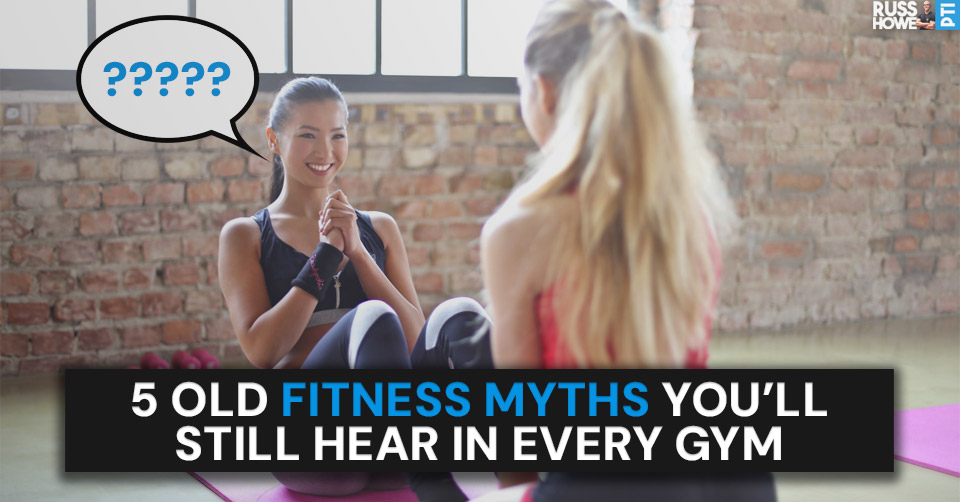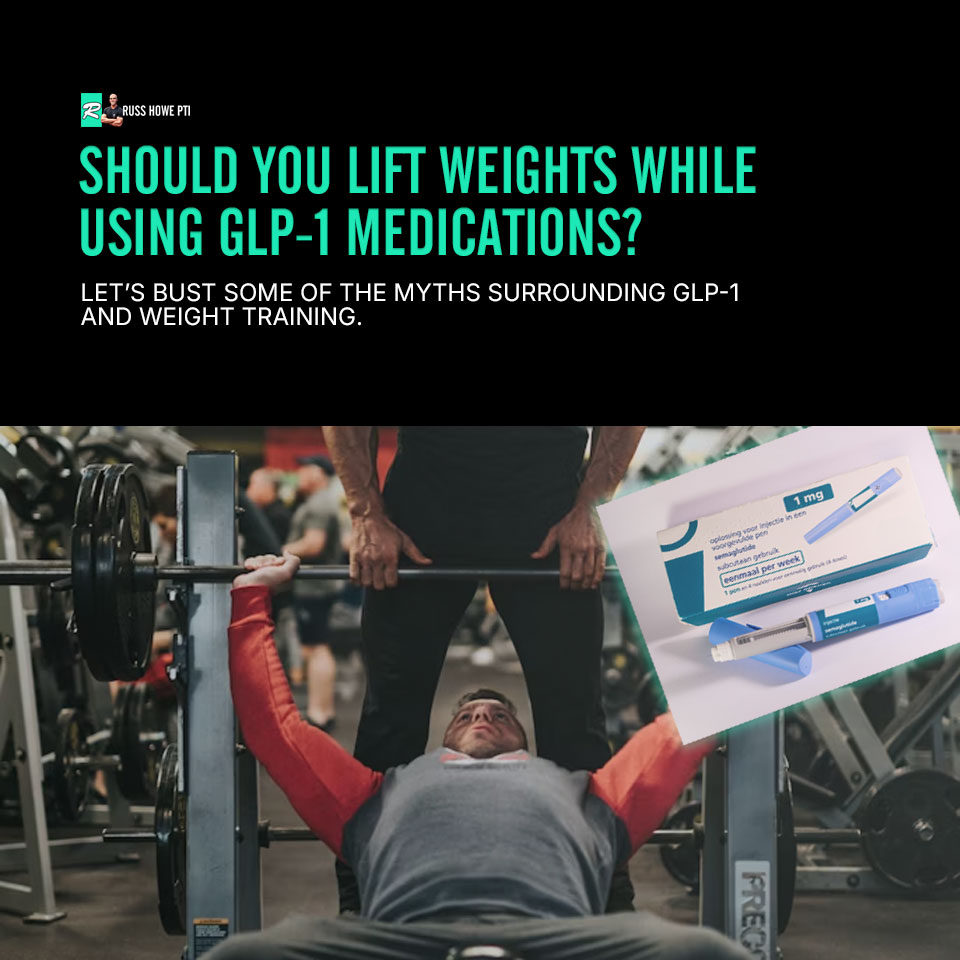Don’t believe everything you hear in the gym.
Here’s five of the most common fitness myths that’ve been making their way around gym floors for the last few decades

“You’ve Still Gotta Do The Work…”
I get it.
We are super-protective of our results.
So if we think that somebody is going to undermine our transformation by focusing on the use of anabolic steroids, you’ll typically hear a “You’ve still gotta put the work in, bro” or maybe a “You’ve gotta train even harder otherwise it’ll all turn to fat!”
Neither of which are true, of course.
(Seriously, NOBODY is using steroids because they make it harder!)
Anyway, if you take a look at the graph below you’ll see the results of a study published in the New England Journal of Medicine which compared the muscle building results of anabolic steroids on various groups of trainees. As you’d expect, the trainees who hit the gym and used steroids built (by far) the most muscle mass, but perhaps the biggest shock which this study threw up is that trainees who used steroids but didn’t exercise actually gained more muscle than trainees who hit the gym three days per week without using steroids. (13, 14)
So much for “putting in the work”, huh?


“Easting Small Frequent Meals Speeds Up Your Metabolism”
Eating food causes a temporary increase to our metabolic rate, so some people believe that dividing your food into lots of small meals will increase fat loss by creating more of these metabolic spikes.
However, a 2013 study published in Obesity laid the smackdown on this theory.
Researchers controlled the calorie intake of participants while increasing their meal frequency from three meals per day to six meals per day, and showed that this did not increase fat loss, nor did it speed up the metabolism. (2)
Interestingly, they found that some people felt hungrier as a result of switching to smaller more frequent meals, lending credence to the theory that you should just follow a timetable that suits you.
This myth has been around forever (it’s so engrained in fitness folklore that I was even taught it during a gym instructor course in 2001!), and the confusion is not helped when people are given silly advice like this from “fitness influencers”:


“Gym Newbies Should Stick To Cardio At First”
Gym newbies are often told that they should focus on doing cardio at first, and then add weights further down the line.
I do not agree.
I’m not saying that cardio won’t help you lose weight, but rather that you don’t need to delay adding weight training to your routine. You see, studies show that a combination of both is superior, and more fun, which significantly improves your chance of being consistent in the long-term. (1)


“Early Morning Fasted Cardio Burns More Fat”
During the early 2000s, I regularly dragged my ass out of bed at Fuck O’ Clock in the morning to pound the treadmill.
I did this because fitness magazines (the best source of fitness information at the time) claimed that doing early morning fasted cardio burns more fat.
So imagine my delight (and simultaneous dismay at all those missed lie-ins) when I discovered they were dead wrong!
You see, the original theory behind this concept was that training in a fasted state would give the body no choice but to burn through stored fat for fuel during exercise, but we now have stacks of peer-reviewed research showing that this isn’t how it works at all. It turns out the body is a lot smarter than we gave it credit for, and if you perform your cardio in a fasted state it’ll balance the books by switching to burning carbohydrates for fuel later in the day, and vice versa. This basically means you can do cardio fasted/fed and even AM/PM and see largely the same results. Here’s more on this topic. (9, 10, 11, 12)

“You Gotta Eat Clean To Get Lean!”
I asked Dr. Layne Norton, PhD, to chime in on this one.
Here’s what he had to say:

“Clean eating is a meaningless fitness term which usually causes more harm than good.
Foods which are deemed to be healthy are classed as clean, and foods which are deemed to be unhealthy are dirty, but this simply doesn’t work, because something which would be considered clean for a bodybuilder might be dirty for a vegetarian, and something which a vegetarian considers clean would be unacceptable to a vegan, etc.
Plus, encouraging people to categorize foods as good and bad (or clean and dirty) ensures they’ll build an an unhealthy relationship with food. Research clearly shows that we do not need to fear or avoid any food, because fat storage ultimately comes down to total calorie intake, and there are a number of ways to control this, so you don’t need to live on chicken and rice!” (3, 4, 5, 6, 7, 8)
– Dr. Layne Norton, PhD

Further Reading:
If you enjoyed this blog, then you’ll probably also like reading these.
>> The Rules To Ripped
>> 11 Popular Fitness Quotes That Are Dead Wrong
>> The 7 Characters You’ll Meet (And Hate) In Every Gym
References:
- Willis L. H., et al. Effects of Aerobic and/or Resistance Training on Body Mass and Fat Mass in Overweight or Obese Adults. J Appl Physiol (2012).
- Ohkawara K., et al. Effects of increased meal frequency on fat oxidation and perceived hunger. Obesity (2013).
- Leibel R. L., et al. Energy intake required to maintain body weight is not affected by wide variation in diet composition. Am J Clin Nutr (1992).
- Golay A., et al. Similar weight loss with low- or high-carbohydrate diets. Am J Clin Nutr (1996).
- Golay A., et al. Weight-loss with low or high carbohydrate diet. Int J Obes Relat Metab Disord (1996).
- Luscombe-Marsh N. D., et al. Carbohydrate-restricted diets high in either monounsaturated fat or protein are equally effective at promoting fat loss and improving blood lipids. Am J Clin Nutr (2005).
- Raatz S. K., et al. Reduced Glycemic Index and Glycemic Load Diets Do Not Increase the Effects of Energy Restriction on Weight Loss and Insulin Sensitivity in Obese Men and Women. J Nut (2005).
- Johnston C. S., et al. Ketogenic low-carbohydrate diets have no metabolic advantage over nonketogenic low-carbohydrate diets. Am J Clin Nutr (2006).
- Febbraio M. A., et al. Effects of carbohydrate ingestion before and during exercise on glucose kinetics and performance J Appl Physiol (2000).
- Schoenfeld B. Does Cardio After an Overnight Fast Maximize Fat Loss? Str Cond J (2011).
- Hackney K.J., et al. Timing Protein Intake Increases Energy Expenditure 24 H After Resistance Training. Med Sci Sports Exerc (2010).
- Paoli A., et al. Exercising Fasting Or Fed To Enhance Fat Loss? Influence Of Food Intake On Respiratory ratio And Excess Post Exercise Oxygen Consumption After A Bout Of Endurance Training. Int J Sport Nutr Exerc Metab (2011).
- Bhasin S., et al. The effects of supraphysiologic doses of testosterone on muscle size and strength in normal men. N Engl J Med (1996).
- Sinha-Hikim I., et al. Testosterone-induced increase in muscle size in healthy young men is associated with muscle fiber hypertrophy. Am J Physiol Endocrinol Metab (2002).







Leave a Reply